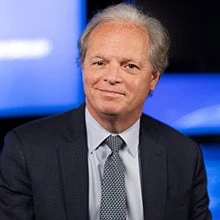 Les habitants du sud de la Mauritanie portent des vêtements qui les protègent contre les fréquentes tempêtes de poussière au Sahel. Mauritanie. Photo : © Scott Wallace/Banque mondiale
Les habitants du sud de la Mauritanie portent des vêtements qui les protègent contre les fréquentes tempêtes de poussière au Sahel. Mauritanie. Photo : © Scott Wallace/Banque mondiale
I have recently travelled across the Sahel region from Mali to Burkina Faso to Niger and finally to Mauritania where I addressed the Sahel Alliance General Assembly and the G5 Sahel Leaders’ Summit. During my travels, I met mothers, fathers, engineers, economists, entrepreneurs and community groups. Before arriving in the Sahel, I was at the Munich Security Conference with diplomatic and military leaders.
These people share a common concern: the increasing violence and deteriorating security situation in the Sahel region, and its severe impact on communities, societies and economies.
An estimated 15,000 lives have so far been lost due to the conflict and the region is grappling with huge crisis of forced displacement. At the end of 2019, there were an estimated 1,000,000 internally displaced persons (IDPs) and 165,000 refugees in the region. In the last month, these numbers have increased by 150,000 IDPs in Burkina Faso alone.
The violence destroys jobs, property, health facilities and schools. Nearly 3,800 schools are closed in Burkina Faso and Mali alone and over ten thousand teachers cannot attend work, interrupting schooling for over 500,000 children.
The conflict also strains government budgets. To respond to the increased security threats, governments in the Sahel have been forced to significantly increased their security sector expenditures. In 2018, these represented between an average of 22 percent of Government budgets, reducing spending on public services.
Given these stresses and increasing numbers of people in poverty, the Sahel Region is a priority for the International Development Association (IDA), the World Bank’s fund for the world’s poorest countries. During the last three years we have scaled up our support by 50 percent and we will go even further in the next three with expected investments of over $7 billion in the Sahel.
Support from IDA will complement the efforts of humanitarian agencies and security actors. International forces as well as the UN have been supporting the Sahel countries and their G5 Sahel joint force to establish a credible military response to violence across the region.
Yet, as we have seen elsewhere, no matter how large the military force, there can be no lasting peace without serious development investments that address the underlying causes of conflict.
When the violence stops, local communities need to feel the benefits. Visible programs to reduce poverty, create jobs and improve public services will be critical, alongside those to improve infrastructure and strengthen institutions and the rule of law. Of equal importance will be helping countries adapt to the effects of climate change, which is contributing to tensions associated with food insecurity, water scarcity and shrinking space for grazing livestock.
With such profound challenges, a business as usual approach is not enough. As well as a financing boost from the World Bank, the Sahel will benefit from our new strategy for countries affected by fragility, conflict and violence that will be published next week.
Implementing this strategy will require supporting countries in addressing the root causes of conflict, like poverty and inequality, a lack of jobs, access to land and resources, the effects of climate change, exclusion, justice and transparency.
For example, the World Bank’s $295m Sahel Women Empowerment and Demographic Dividend Project (SWEDD) is already empowering women and girls across the region by increasing their access to reproductive, child and maternal health services. It also supports schooling and teaches vocational skills, and life skills like reproductive health, health and nutrition, hygiene, self-esteem, and financial literacy.
These projects will continue in areas of active conflict – like Mali, Burkina Faso, Niger and Chad – where we will stay engaged to preserve key institutions and preserve the social contract. Our programs will maintain basic services like health and education and promote job creation by improving the business environment, especially for small and medium enterprises which provide 80% of jobs in fragile situations.
Moreover, the strategy includes specific measures to refugees, IDPs and the communities that host them, to help manage the impact of conflicts which spill over across borders. Since fragility and conflict rarely respect national boundaries, the World Bank will take a regional approach to address the wider social and economic impacts across borders.
At the center of our strategy is a commitment to work in places like the Sahel as part of a broader international effort to ensure sustainable peace. A single actor cannot solve the complex challenges of a region like the Sahel, so close cooperation with humanitarian agencies and security forces is essential. Here, France has led by example as a long-term partner.
In each of the countries I have visited it is clear the people of the Sahel are among its greatest assets. Across the region I have been inspired by the determination of those I have met to make a difference in their country and their community – from engineers in Mali to entrepreneurs in Niger. This determination, when paired with better security and inclusive policies to create opportunities, can help the Sahel on the long road towards peace and prosperity.



Join the Conversation